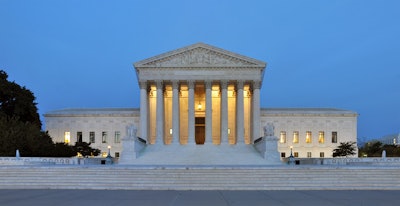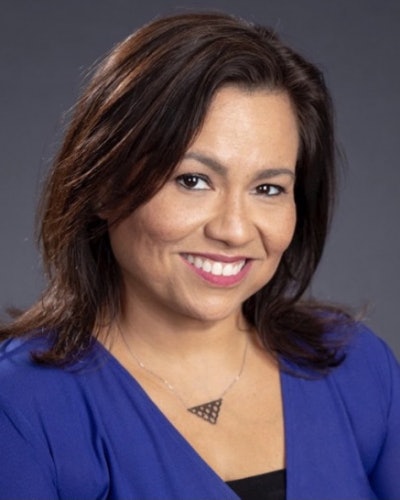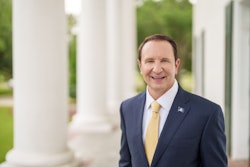
“This is a court that has little regard for precedent and a very strong belief that it knows what the Constitution truly means—and that everything that happened before this court may be wrong and may be discarded,” said Dr. Gary Orfield, a professor of education, law, political science, and urban planning at the University of California, Los Angeles (UCLA) and co-director of UCLA’s Civil Rights Project. “That is the part that bears on how this court might approach affirmative action, voting rights, and other fundamental civil rights.”
Last week's leaked draft opinion over Roe from the conservative supermajority court would take away the federal right to abortion, which was established in the 1973 case. The draft is not the final decision, which will come next month. Yet many experts say the court is unlikely to significantly, if at all, alter its stance. Now affirmative action may be on the chopping block.
In January, the Supreme Court agreed to decide whether race-conscious admissions programs at Harvard University and the University of North Carolina (UNC) are lawful. The court has upheld similar programs before, most recently in 2016. Yet today’s conservative supermajority has shifted the playing field dramatically.
“I have to say that it doesn’t take much insight to guess what’s going to happen with affirmative action because we have Justice Roberts, Thomas, and Alito already having written dissenting opinions in previous affirmative action cases,” said Victor Goode, an associate professor at the City University of New York (CUNY) School of Law. “There is no reason that Justices Gorsuch, Kavanaugh, and Coney Barrett will take different points of view. They are ideologically cut from the same cloth as the other three.”
Devon Westhill, president and general counsel at the Center for Equal Opportunity (CEO), a conservative think tank, agreed and applauded the draft opinion on Roe. CEO states on its website that it promotes “colorblind, equal opportunity and nondiscrimination in America.”
“As soon as that leak was confirmed as authentic by the Chief Justice, the first thing that came to my mind was that they are going to abolish affirmative action,” said Westhill. “Because if they are going to do this with Roe, then these are some stiff-spined Justices. This court is prepared to say what the law is and not be incremental. These are Justices ready to right a number of precedential wrongs, and I think Roe is among them.”
Westhill referred to the Supreme Court’s 2003 Grutter v. Bollinger decision as one of those “precedential wrongs” to be righted. The court ruled in that case in support of holistic admissions programs, saying that race could be considered as one factor among many to reach educational diversity.
“Grutter was wrongly decided the day it was released,” said Westhill.
Yet Dr. Stella Flores, an associate professor of higher education and public policy at the University of Texas at Austin, voiced concern over such stances. Dr. Stella Flores
Dr. Stella Flores
“My fear is if there is no respect for health care, there will certainly be no respect for educational opportunity,” she said.
Flores noted that restricting or banning race in admissions would likely disproportionately hurt Black and Latinx students. In California, where race-conscious affirmative action has been outlawed since 1996, these ripple effects have already been playing out.
A 2020 study from the University of California, Berkeley found Black and Latinx student enrollment in California’s public universities declined since the ban. The report also revealed that, following the ban, students of color were less likely to get college degrees, graduate degrees, or jobs in the STEM fields.
“Latinos are doing better in Texas than in California in terms of college completion rates,” said Flores. “Despite being a liberal state, California still has some of the most critical barriers to education. We know what doesn’t work, and we know what works. But that doesn’t translate into voter or legislative decisions, unfortunately. So, if we want to fight for the nation’s future, we have to fight hard.”
A decision on the Harvard and UNC cases, which will be heard jointly this fall, will likely not be reached until the spring or summer of 2023. Both cases were brought by Students for Fair Admissions, a group founded by Edward Blum, who has led several lawsuits against race-conscious admissions policies and voting rights laws.
“We really don’t know anything definitively,” said Dr. Julie Park, an associate professor of education at the University of Maryland, College Park. “There is definitely legitimate concern, but we also won’t know until the case goes to trial with this next round. It’s anyone’s guess.”
Park researches racial equity in higher education, including Asian American college students, affirmative action, and college admissions. She was a consulting expert in the Students for Fair Admissions v. Harvard case on the side of Harvard.
The case against Harvard argued that it discriminated against Asian American students, which Harvard has denied. Harvard won in a federal trial court, and the decision was affirmed in a federal appeals court. Yet the Supreme Court still decided to hear this case alongside the UNC case.
“In terms of educational opportunity, the tragedy here is that the diversity rationale has been held up in decision after decision at the Supreme Court," added Flores. "There is no reason for this to come back to the court—just like there was no reason for Roe to come back. But precedent apparently doesn’t matter.”
In the North Carolina affirmative action case, the plaintiffs argued that UNC discriminated against white and Asian applicants by giving preference to Black, Latinx, and Native American students. UNC responded that its admissions policies were lawful and built educational diversity.
“I think it will be really disastrous if it happens,” added Park on the consequences of removing race as a consideration in admissions.
Dr. Charles McKinney, an associate professor of history and chair of Africana studies at Rhodes College, researches the Civil Rights Movement. He noted that the likely end of Roe and race-conscious affirmative action come as no surprise given the direction opponents have been moving in for years.
“This is the latest stop in a long-term frontal assault on civil rights and civil liberties, which I think we can trace at the very least back to opposition to Brown v. Board of Education in 1954,” he said. “In the back of conservatives’ minds, I think there has always been the notion that the Brown decision represented federal overreach and a disruption of the status quo, which was explicit racial subordination.”
Orfield similarly stressed the importance of recognizing this country's civil rights history to make sense of the moment.
“The default in our society hasn’t been colorblindness. It has been discrimination,” he said. “And that discrimination has not been cured yet. This is a fundamental reality that needs to be communicated to this court, whether or not they want to listen or will pay any attention.”
Rebecca Kelliher can be reached at [email protected].



















